Newest Residents of the Ararat Ridge Zoo
by Ark Encounter on June 27, 2024Over the past few months, we have introduced several new animals to the Ararat Ridge Zoo. Meet and learn more about them below!
Northern Caiman Lizard
Who’s new at the zoo? Say hello to Chewlius Caesar! He’s a northern caiman lizard, a species within the whiptail lizard kind from South America.
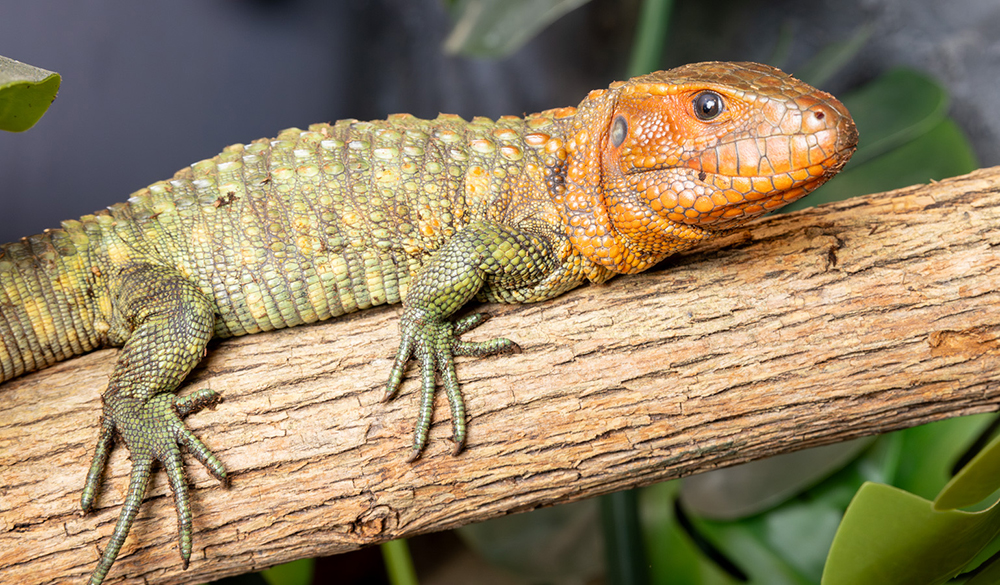
Similar to caimans, these lizards have a semiaquatic lifestyle, powerful jaws for hunting, and strong tails for swimming and defense. They are also excellent climbers. He’s a baby now, but he may grow up to four feet long!
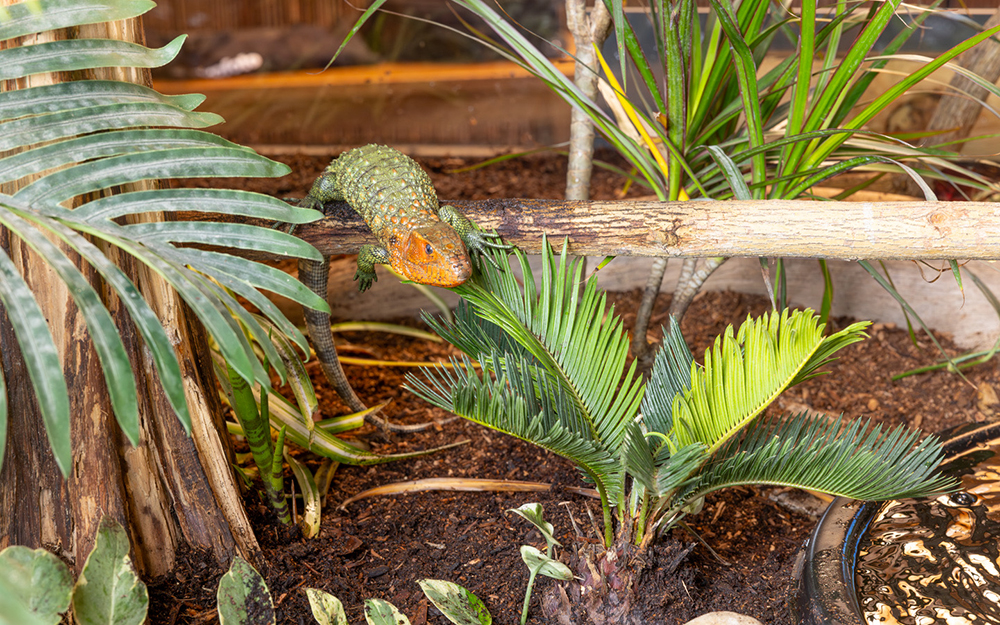
Look for Chewlius basking on a branch or submerged underwater during your visit. He is joined in his habitat by anole lizards.
Green Anaconda
Wrangler the green anaconda is officially in habitat!
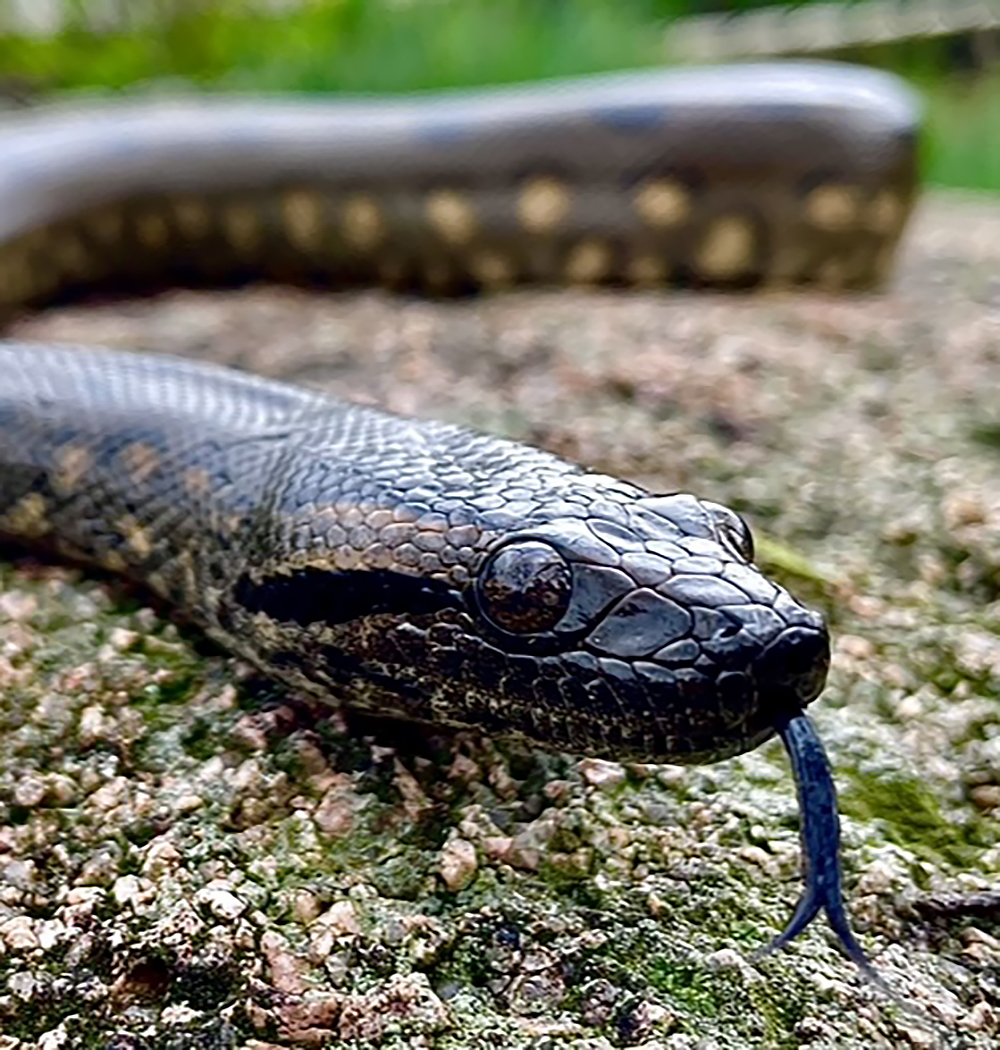
These snakes are slow on land but fast in the water, and they spend much of their time submerged with only their nostrils and eyes exposed. Our herptile staff worked diligently to mimic his South American habitat. He may grow to over 10 feet long.
Several species of colorful poison dart frogs join Wrangler in his habitat.
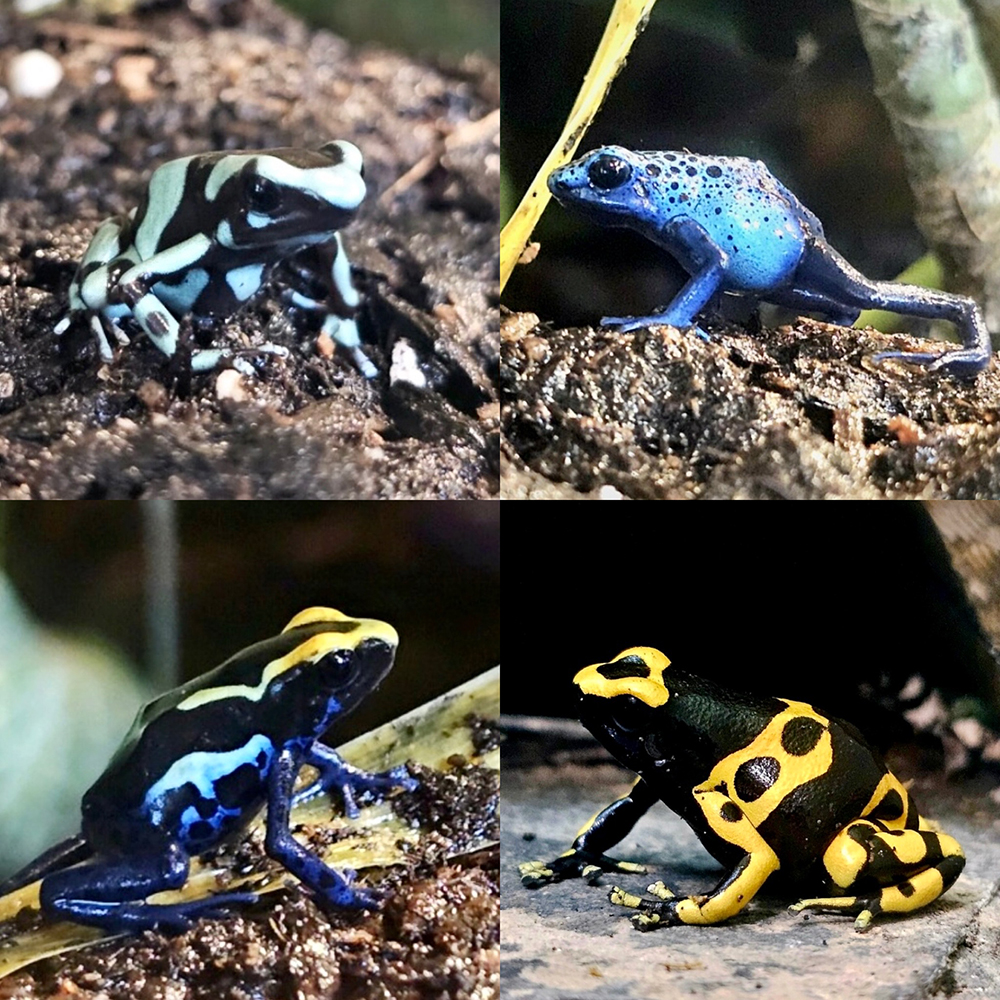
Marabou Storks
The Ararat Ridge Zoo is now home to the largest living members of the stork kind.
Meet Nzuri (ZUR-ee) and Mrembo (REM-boh), our new female marabou (MARE-ah-boo) storks! Their names both mean “pretty” or “beautiful” in Swahili.
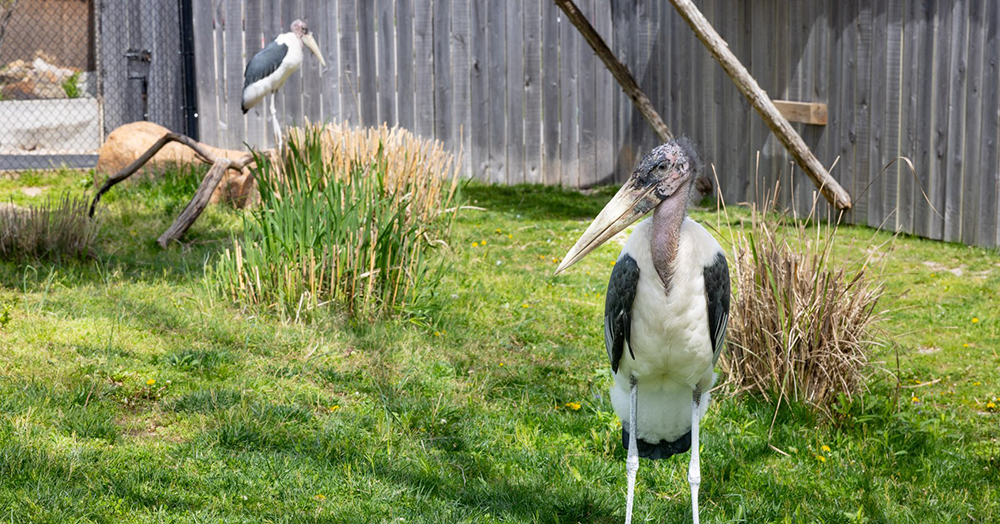
Native to sub-Saharan Africa, these storks weigh up to 20 pounds, grow 4–5 feet tall, and have wingspans approaching 10 feet. They are often called “undertaker birds” because their coloration resembles that of funeral directors and because they act as important scavengers in our fallen world. Their bald heads help them keep clean while eating carcasses, just like vultures.
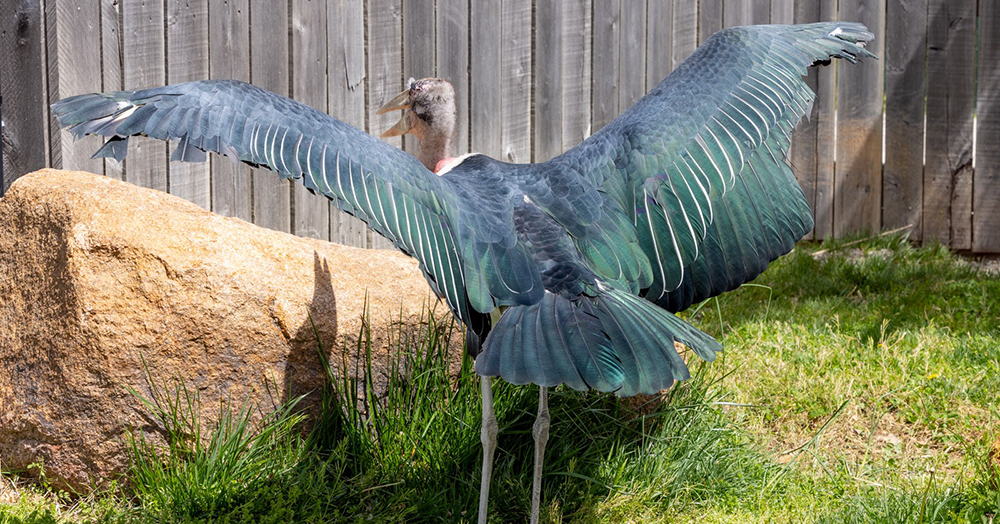
They will also opportunistically hunt anything they can catch, often waiting at the edge of grass fires to grab fleeing animals. The pink sacs on their necks are called gular (GOO-lar) sacs and help them vocalize, but they usually communicate through bill clattering. Did you know that stork bills can snap shut in 25 milliseconds, one of the fastest reactions of any vertebrate?
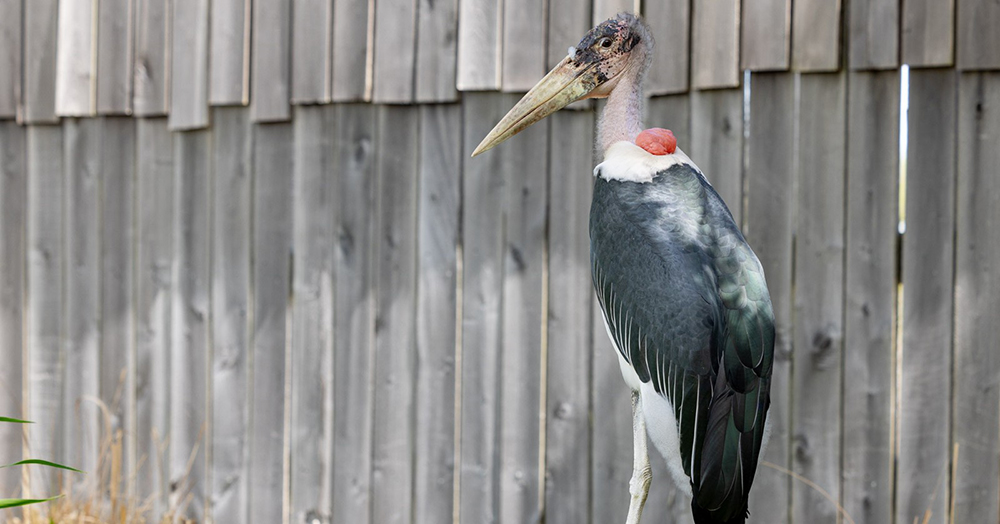
Nzuri and Mrembo live in a habitat with Munch, our 150-pound African spurred tortoise.
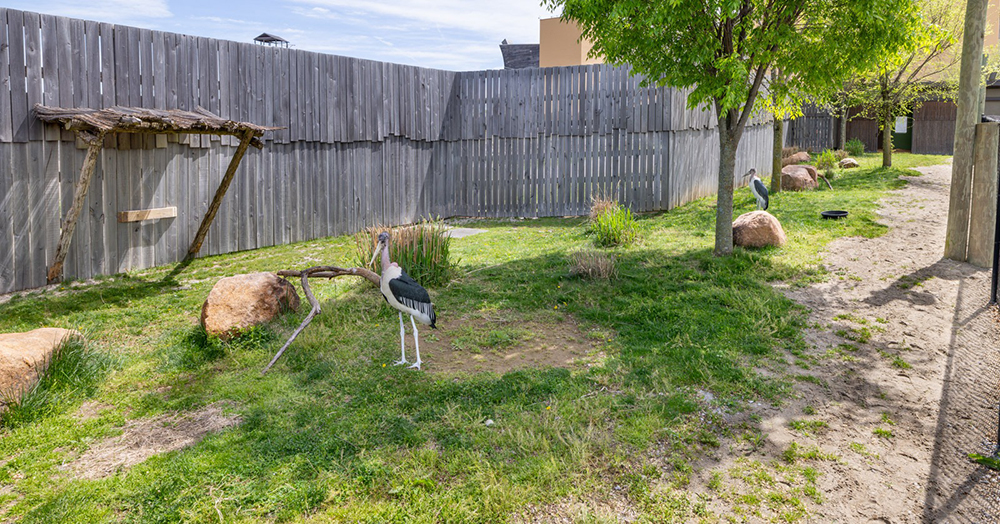
American Barn Owl
Do you give a hoot about animals? Do you want to learn about animals that live in your backyard? Then come to our zoo programs at the Ark Encounter, where you can meet unique animals like Sunny, our new American barn owl!
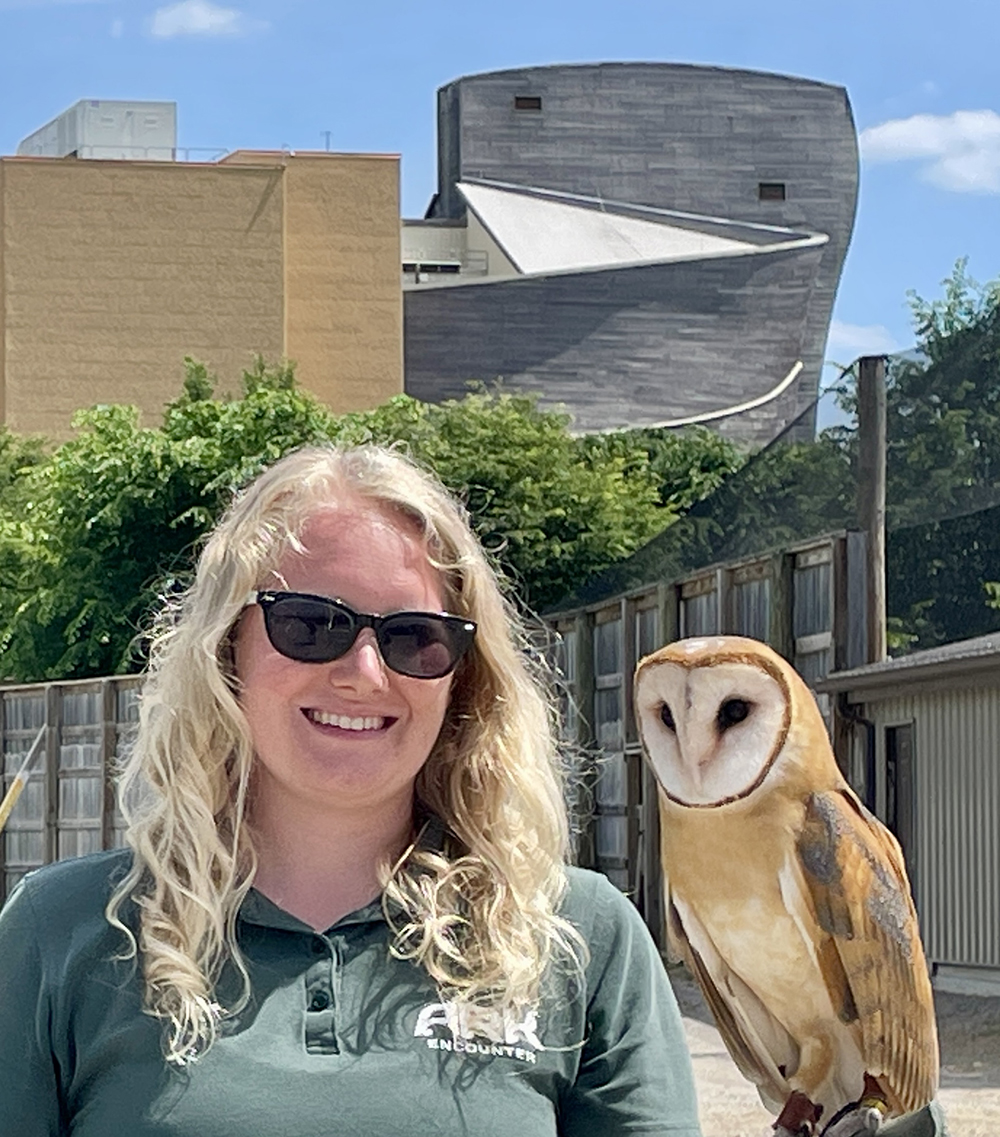
His primary trainer, Brittany, has been teaching him how to step up onto her gloved arm, put on his equipment, and sit still on the glove. He’s doing great but is still learning the concept of facing forward! You may see him out and about on adventures in the zoo and performing in our daily animal programs.
Sugar Glider
Peekaboo! Meet Michael the sugar glider, who joined the zoo in April.
Native to Australia and the surrounding islands, these adorable marsupials spend most of their lives gliding from tree to tree. Michael will join Gabriel, our other sugar glider, as an animal ambassador appearing in our daily animal programs.
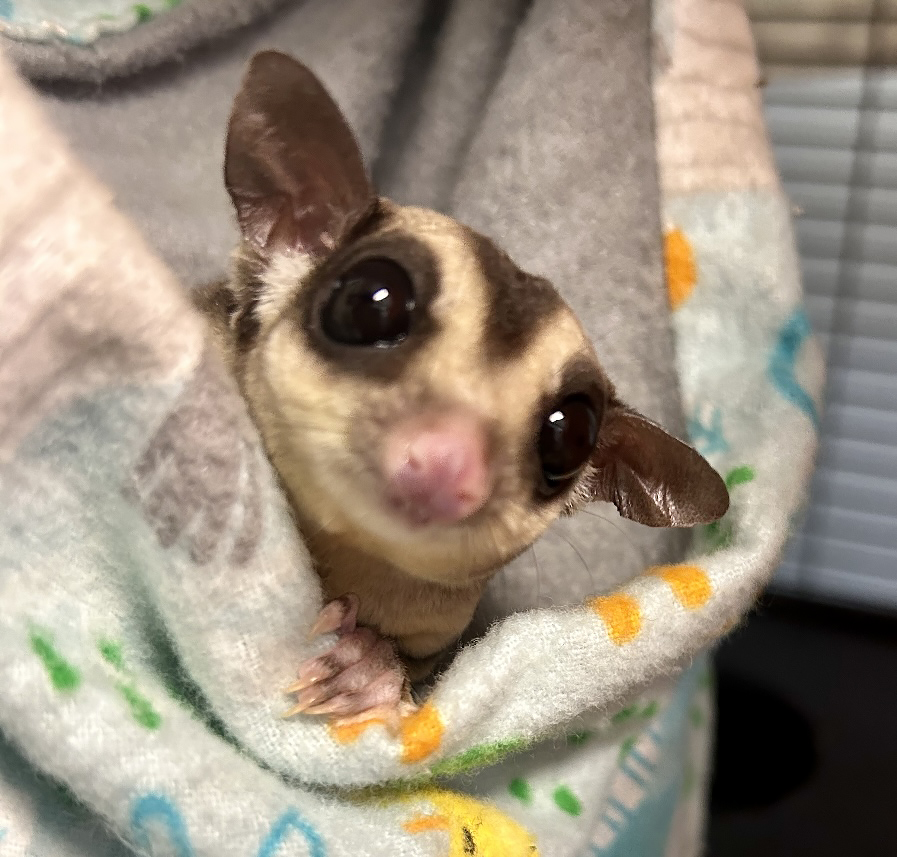
Anteaters
We are thrilled to welcome these two exciting new arrivals: both giant anteaters! The male is named Douglas, and the female is named Quinn—after Cosequin, the #1 veterinarian recommended joint supplement for animals. Cosequin is produced by Nutramax Laboratories, who has donated a generous amount of funding to improve the Ark Encounter’s Ararat Ridge Zoo and to help build the new Eden Zoo at the Creation Museum.
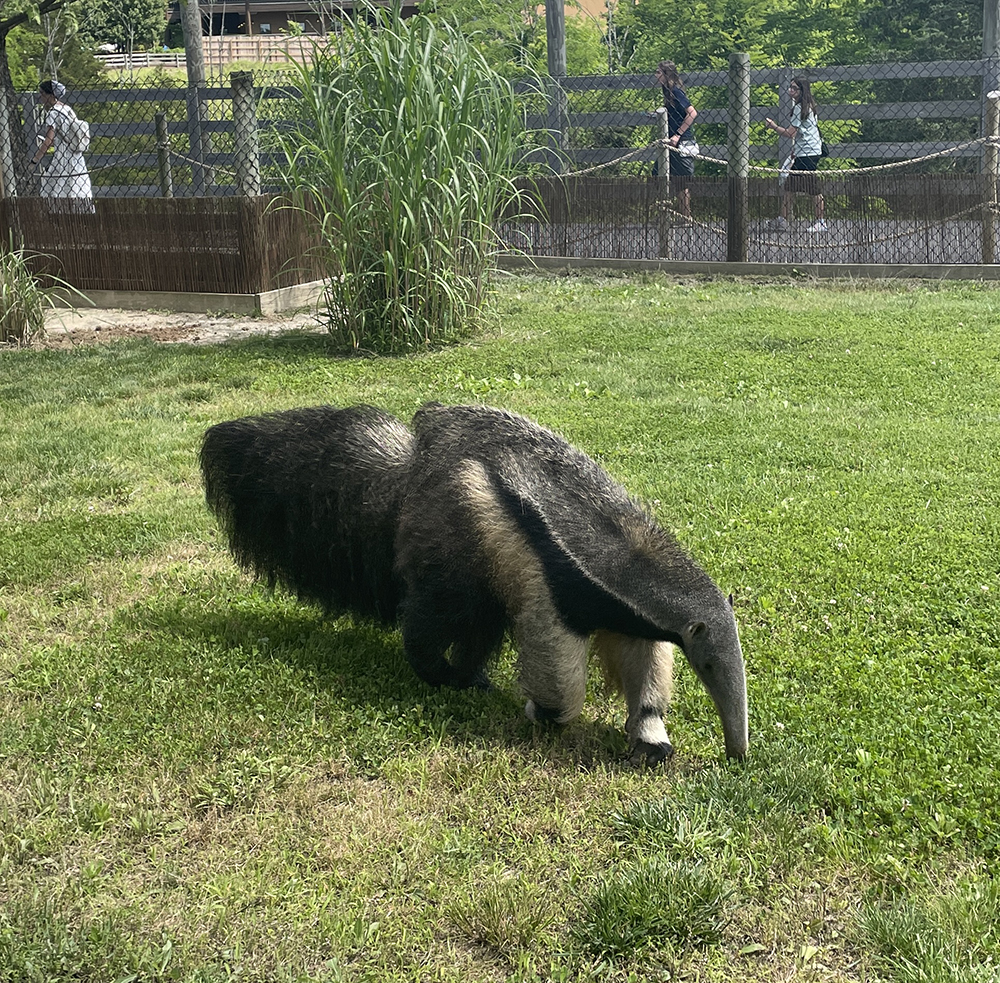
Giant anteaters are the largest members of the anteater kind, growing up to seven feet long and 140 pounds. Native to Central and South America, they use their two-foot-long spiny tongues to consume over 30,000 insects per day! Their sense of smell is 40 times stronger than a human’s, and they can identify each other by the scent of their saliva.
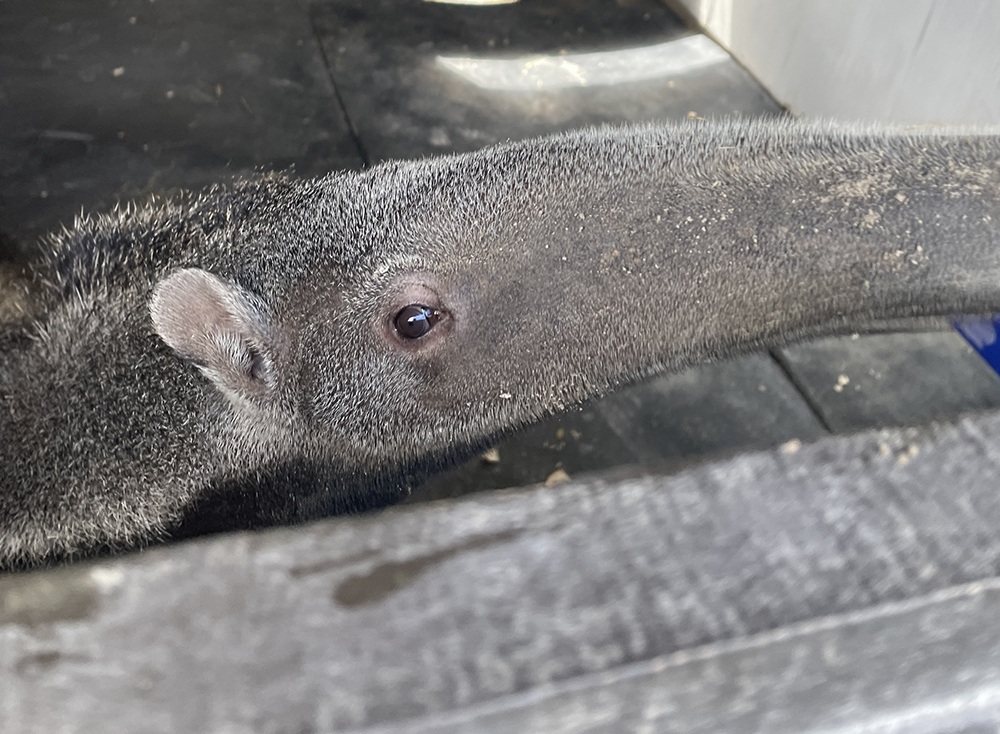
The male will remain at Ark Encounter’s Ararat Ridge Zoo, but the female will eventually transfer to the renovated Eden Zoo at the Creation Museum. They are solitary animals, so they appreciate their own space. Be sure to stop by and see these amazing new additions soon!
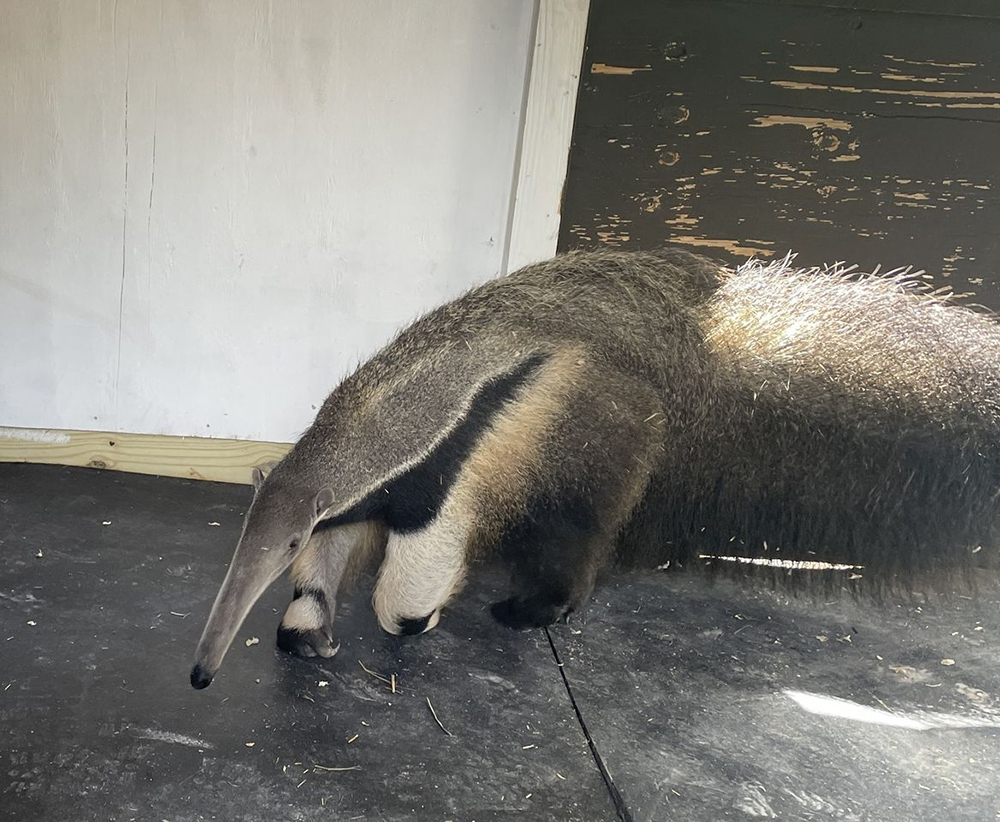
Great Horned Owl
Say hello to Eclipse! Eclipse is a great horned owl who was rescued in Ohio after being found with a broken wing. Because of this injury, Eclipse cannot fly and could not be released into the wild after rehabilitation.
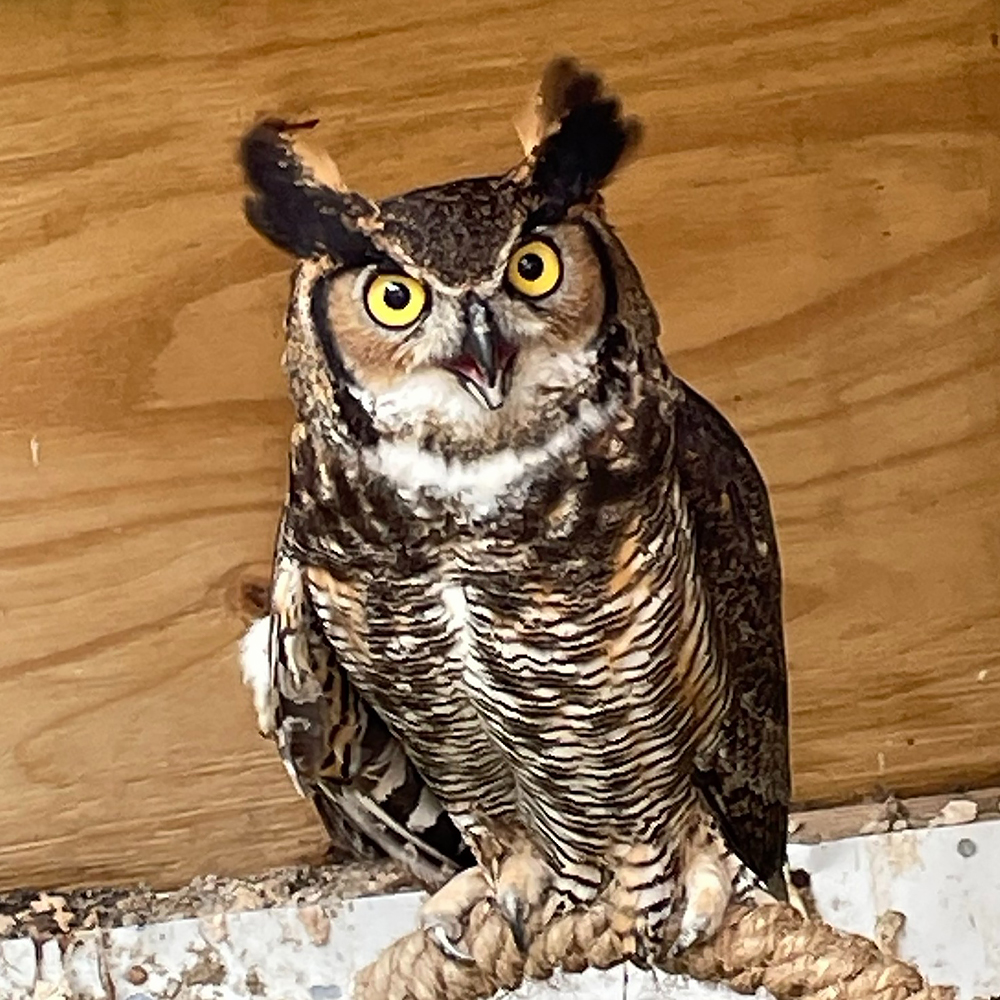
Zoo staff are happy to provide this owl with a permanent home in Junior’s Zoo Adventure! Be aware that as Eclipse acclimates to its new home, it may not always be visible to guests.
Zookeepers are not yet sure whether Eclipse is a boy or a girl; it will need genetic testing. Since we already have owls named Luna and Sunny, the zoo staff kept with the celestial theme and highlighted this year’s solar eclipse with its name.
If you’d like to stay up to date with what is happening in the zoo and learn even more about our animals, follow the Ark Encounter’s Ararat Ridge Zoo page on Facebook!
Start planning your trip to the Ark Encounter today, and make sure you visit the Ararat Ridge Zoo, located behind our life-size Noah’s Ark, during your visit.